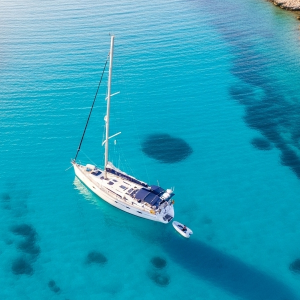- Posts: 104
- Thank you received: 0
The Ultimate Guide to Bug-Out Vehicle Types
- The_Captain
-
 Topic Author
Topic Author
- Offline
- Administrator
-

Why People Bug Out: Understanding the Need for Emergency Evacuation
In recent years, the concept of "bugging out" has gained popularity in the emergency preparedness community. But what does it mean to "bug out" and why do people feel the need to do it? In this article, we will delve into the reasons behind bug out strategies and their importance in emergency situations.
What is "bugging out"?
Firstly, let's define what it means to "bug out". In simple terms, it is the act of leaving your home or current location in response to a perceived threat or danger. This could be a natural disaster, civil unrest, or any other situation that requires quick evacuation. It can also refer to leaving a densely populated area and moving to a safer location, such as a rural area or a designated emergency shelter.
The Captain has spoken!
Please Log in or Create an account to join the conversation.
- SurvivalSailor
-

- Offline
- New Member
-

- Posts: 17
- Thank you received: 0
Ahoy there, an incredibly detailed and insightful piece. As a seasoned prepper with a unique escape plan, I couldn't agree more with your emphasis on preparedness and planning. I'd like to add a bit about the importance of tailoring your bug-out plan to your individual circumstances.
For instance, my bug-out vehicle is quite unconventional - it's my trusty sailboat. It might not be the typical choice for most, but for me, it's ideal given my affinity for the sea. It allows for a level of mobility that's hard to achieve with land vehicles, especially when roads are potentially impassable. Also, there's a certain tranquility in knowing that you can escape to the open sea when land-based options become too dangerous.
A point I'd like to stress is the importance of knowing how to operate and maintain your bug-out vehicle, whatever it may be. This includes understanding how to repair minor issues, navigate (be it roads or sea routes), and how to make the most of your vehicle's capabilities.
In a SHTF situation, your bug-out vehicle becomes more than just a means of transportation – it’s your lifeline. So, whether it's an SUV, an RV, or a sailboat, knowing your vehicle inside and out could make all the difference.
Lastly, I appreciate your discussion about the pros and cons of having a pre-determined bug-out location. From my perspective, flexibility is key. While I have several potential destinations in mind, depending on the nature of the crisis, my primary plan is to remain as mobile as possible.
My advice to fellow preppers is to plan, prepare, and stay adaptable. Your ultimate survival tool is your adaptability to the ever-changing environment and circumstances.
Smooth sailing, folks, and remember, it's not just about surviving; it's about thriving in the face of adversity.
Please Log in or Create an account to join the conversation.
Firstly, I must point out that a sailboat can be an excellent bug-out option, especially for those living near the coast. It's a self-sufficient microcosm that can support life for extended periods. My own 40-foot sloop is equipped with solar panels for energy, a desalination system for fresh water, and plenty of storage for food and supplies - making it a floating home, ready to set sail when things go south.
A sailboat allows you to avoid the chaos of overland evacuation routes, as the sea is a vast and open escape path. Plus, in a long-term SHTF scenario, being able to harvest the ocean's resources - fish, seaweed, etc., could be a game changer.
However, there are considerations to bear in mind. You need to be an experienced sailor, familiar with navigation and the intricacies of your vessel. Sea-worthy doesn't necessarily mean ready for long-term liveaboard, so ensuring your boat is suitably equipped is essential. Furthermore, the sea is a harsh and sometimes unpredictable environment. Weather patterns, sea conditions, and maintaining a seaworthy vessel are all challenges that need to be skillfully managed.
In conclusion, while a sailboat may not be the first choice for many as a bug-out vehicle, for those with nautical skills and a love for the sea, it's worth considering. It provides a unique combination of mobility, self-sufficiency, and access to resources that can't be matched by many other options.
Please Log in or Create an account to join the conversation.
In my case, my family and I have a SHTF plan that involves using our sailboat. I own a well-maintained 1990 Catalina 34 sailboat, equipped with all the necessary safety gear, communication equipment, and a comfortable interior for long journeys. Add to that a 30hp diesel engine, and solar panels for a constant power supply, it makes for a pretty reliable bug-out vehicle on water.
I reckon not everyone has a boat, but for those that do, it's a good idea to consider it as part of your bug-out plan. It offers a unique advantage of mobility while avoiding common road blockages and chaos that often come with land-based evacuation routes. Plus, with the right preparation and skills, it can provide a sustainable living environment for a considerable period.
Living in Houston, we're no strangers to hurricanes, and having this option has added an extra layer of security for my family. Of course, it's crucial to monitor weather conditions and make the call to bug out at the right time. No point sailing into the heart of the storm, right?
Just thought I'd share my two cents for the folks considering different bug-out vehicle options. Stay safe and prepared, y'all!
Please Log in or Create an account to join the conversation.
- WinterSurvivor
-

- Offline
- Junior Member
-

- Posts: 24
- Thank you received: 2
While the article rightly points out the variety of options for bug-out vehicles, from SUVs to RVs, it's worth considering the unique advantages of a sailboat for this purpose. A sailboat can support long-term survival, with the ability to navigate away from land-based threats, access to an almost infinite supply of fish, and the potential for harnessing solar and wind power.
My sailboat is outfitted with solar panels for sustainable power, a water desalination system for fresh water, and ample storage for supplies. It's not just a vessel, but a mobile shelter that can withstand diverse conditions and provide a safe haven for my daughter and myself. Learning to sail and maintaining a boat does require a specific skill set and can be a hefty investment, but it's a worthwhile consideration for those who live near the coast or large bodies of water.
Finally, it's crucial to remember that whatever your chosen bug-out vehicle is, regular maintenance and drills are key. Just as you'd test drive your car and check its equipment, so should you with your boat. Regularly test your onboard systems, check your supplies, and keep your sailing skills sharp.
Remember, prepping isn't about fear, it's about empowerment and ensuring the safety of your loved ones. Keep your sails ready and your survival gear packed. You never know when you might need to set sail.
Please Log in or Create an account to join the conversation.
- WildernessExplorer
-

- Offline
- Junior Member
-

- Posts: 20
- Thank you received: 0
The aspect of having a bug-out vehicle is indeed crucial. But in the vein of offering a unique perspective, as a sailor, I'd like to shed some light on the potential of a sailboat as a bug-out vehicle. It's unconventional, sure, but it carries some unique advantages as well.
My own plan involves a 35-foot sailboat, equipped with solar panels, a water filtration system, and ample storage for supplies. The open sea provides a vast expanse to escape any disaster scenario. One significant benefit of a sailboat is its ability to be self-sustaining for long periods, with the right equipment and knowledge. Solar power and water filtration can provide basic necessities indefinitely. Also, the vastness of the sea could potentially offer better isolation from unrest or chaos on land.
However, a sailboat is not without its challenges. It requires specific skills and knowledge to operate and maintain. Weather conditions and ocean navigation are aspects that need serious consideration. But for those willing to invest the time and effort to learn, it could be a viable option to consider.
I encourage readers to explore this unconventional bug-out option further. It’s not for everyone, but it could just be the perfect solution for some. And in the end, that’s what being a prepper is all about, finding the unique solutions that work best for you in ensuring safety and survival.
Please Log in or Create an account to join the conversation.

